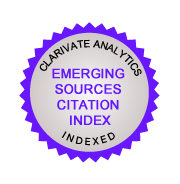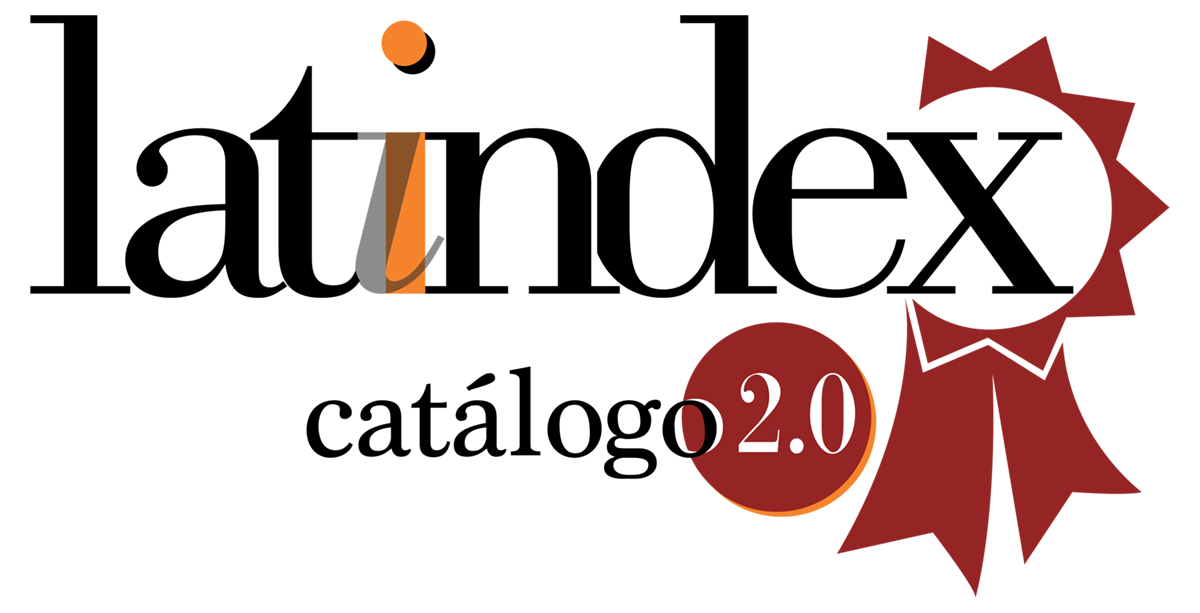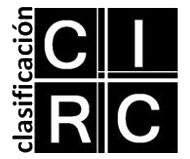Las causas de las protestas pacíficas en América Latina
DOI:
https://doi.org/10.24215/16696581e425Keywords:
Protests, Democracy, Social movements, Latin AmericaAbstract
Latin America is experiencing an increasing social movement activity. The article examines the national level conditions and individual factors that explain peaceful protests in the region. After reviewing theories and previous research on protests in the world, the work tests the main causal hypothesis in the Latin American case developing multilevel or hierarchical linear regression models based on data from the Latinobarómetro survey and other political, economic and social indicators for 18 countries in the region. The main individual driver of peaceful activism is interest in politics, followed by a proxy for emancipative values and education level. The country’s levels of development and democracy and the degree to which the aforementioned values are widespread in society increase activism and amplify the impact of those individual drivers. The use of social media has a relevant influence. By itself, personal and political dissatisfaction has weak or insignificant effects. Latin American’s peaceful protests reflect the rise of empowered and more demanding citizens, as economic and human development advances in the region. Far from disturbing democracy, this process tends to deepen it.
Downloads
References
Barnes, S. H., Kaase, M. (1979). In Conclusion: The Future of Political Action in Western Democracies. En Barnes, S. H., Kaase, M. et al. (pp. 523-36). Political Action: Mass Participation in Five Western Democracies. Beverly Hills, CA: Sage.
Carter, A., Clark, H. y Randle, M. (eds.) (2013). A Guide to Civil Resistance: A Bibliography of People Power and Nonviolent Protest Since 1945. Centre for Peace and Reconciliation Studies, Coventry University. Recuperado de https://civilresistance.info
Chenoweth, E. y Cunningham, K. G. (2013). Understanding nonviolent resistance: An introduction. Journal of Peace Research, 50(3) 271–76.
Chenoweth, E. y Stephan, M. J. (2011). Why Civil Resistance Works: The Strategic Logic of Nonviolent Conflict. New York: Colombia University Press.
Chenoweth, E., y Ulfelder, J. (2015). Can structural conditions explain the onset of nonviolent uprisings? Journal of Conflict Resolution, 61(2), 1-27.
Clark, H. (ed.) (2009). People Power. Unarmed Resistance and Global Solidarity. London: Pluto Press.
Crozier, M., Huntington, S. y Watanuki, J. (eds.) (1975). The Crisis of Democracy. New York: New York University Press.
Cummings, P. M. M. (2015). Democracy and Student Discontent: Chilean Student Protest in the Post-Pinochet Era. Journal of Politics in Latin America, 7(3), 49-84.
Dalton, R. J. (2004). Democratic Challenges, Democratic Choices. Oxford: Oxford University Press.
Dalton, R. J., van Sickle, A. y Weldon, S. (2010). The Individual-Institutional Nexus of Protest Behavior. British Journal of Political Science, 40, 51–73.
Dalton, R. J. y Welzel, C. (2014). From Allegiant to Assertive Citizens. En Dalton, R. J. y Welzel, C. (pp. 282-306). The Civic Culture Transformed. From Allegiant to Assertive Citizens. New York: Cambridge University Press.
Gibney, M., et al. (2019). The Political Terror Scale 1976-2018. Recuperado de http://www.politicalterrorscale.org.
Gurr, T. R. (1970). Why Men Rebel. Princeton, NJ: Princeton University Press.
Heck, R. H., Thomas, S. L. y Tabata, L. N. (2014). Multilevel and Longitudinal Modeling with IBM SPSS. 2nd Edition. New York: Routledge.
Hegre, H,, Metternich, N. W., Nygard, H. M., y Wucherpfennig, J. (2017). Introduction: Forecasting in peace research. Journal of Peace Research, 54(2), 113–24.
Hox, J. J., Moerbeek, M. y van de Schoot, R. (2018). Multilevel Analysis. Techniques and Applications.
Inglehart, R. (1977). The Silent Revolution. Princeton: Princeton University Press.
Inglehart, R. (1990). Culture Shift in Advanced Industrial Society. Princeton: Princeton University Press.
Inglehart, R. (1997). Modernization and Postmodernization. Princeton: Princeton University Press.
Inglehart, R. (2018). Cultural Evolution. Cambridge: Cambridge University Press.
Inglehart, R. F. y Welzel, C. (2005). Modernization, Cultural Change, and Democracy. Cambridge: Cambridge University Press.
Jennings, M. K., van Deth, J. et al. (1990). Continuities in Political Action. Berlin: Walter de Gruyter.
Jorge, J.E. (2010). Cultura Política y Democracia en Argentina. La Plata: Edulp.
Jorge, J.E. (2015). La Cultura Política Argentina: una Radiografía. Question, 1(48): 372-403.
Jorge, J.E. (2016). Teoría de la Cultura Política. Enfocando el Caso Argentino. Question, 1(49): 300-21.
Jorge, J.E. (2017). Estado de Derecho y Valores Democráticos. Las Direcciones del Cambio Cultural. Question, 1(54), 172-206.
Jorge, J.E. (2018b). Valores Democráticos para Tiempos de Crisis. Hallazgos de dos Teorías. Question, 1(57), 1-33.
Jorge, J. E. (2018a). Ni “grieta” ni “degradación moral”: un contraste empírico del relato político en Argentina. Question, 1(59), 1-33.
Jorge, J. E. (2019). Justicia de género y valores emancipadores. Argentina y América Latina en perspectiva comparada internacional. Question, 1(62), 1-27.
Jorge, J. E., Lamanna, G. A., Leguizamón, M y Steciow, U. (2020). Dejando atrás el discurso de la “grieta”. ¿Cómo aumentar la confianza entre los argentinos? Question, 1(65), 1-33.
Kriesi, H. (2004). Political Context and Opportunity. En Snow, D. A., Soule, S. A. y Kriesi, H. (pp. 67-90). The Blackwell Companion to Social Movements. Malden, MA: Blackwell Publishing.
Lee, J. W. y Lee, H. (2016). Human capital in the long run. Journal of Development Economics, 122, 147-69.
Markoff, J. (2015). Waves of Democracy. Social Movements and Political Change. 2nd Edition. Boulder, CO: Paradigm Publishers.
Marsh, A. y Kaase, M. (1979). Measuring political action. En Barnes S.H., Kaase, M. et al., (pp. 57–97), op. cit.
McAdam, D., Tarrow, S., y Tilly, C. (2004). Dynamics of Contentious Action. New York: Cambridge University Press.
McCarthy, J. y Zald, M. (1977). Resource Mobilization and Social Movements. American Journal of Sociology, 82(6), 1212–41.
Meyer, D. S. (2004). Protest and Political Opportunities. Annual Review of Sociology, 30, 125-45.
Naím, M. y Winter, B. (2019). Why Latin America Was Primed to Explode, Foreign Affairs, 29 de octubre. Recuperado de https://www.foreignaffairs.com
Norris, P. (2002). Democratic Phoenix: Reinventing Political Activism. New York: Cambridge University Press.
Opp, K. D. (2009). Theories of Political Protest and Social Movements. New York: Routledge.
Quaranta, M. (2015). Political Protest in Western Europe. New York: Springer.
Sabatini, C. y Bata, A. (2019). Latin America’s Protests Are Likely to Fail. Foreign Policy, 8 de noviembre. Recuperado de https://foreignpolicy.com
Schock, K. (ed.) (2015). Comparative Perspectives on Nonviolent Struggle. Minneapolis, MN: University of Minnesota Press.
Tarrow, S. (2011). Power in Movement. Social Movements and Contentious Politics. 3rd Edition. New York: Cambridge University Press.
Valenzuela, S., Arriagada, A. y Scherman, A. (2012). The Social Media Basis of Youth Protest Behavior: The Case of Chile. Journal of Communication, 62(2), 299-314.
Welzel, C. (2013). Freedom Rising. New York: Cambridge University Press.
Welzel, C. (2014). Evolution, empowerment and emancipation: How societies climb the freedom ladder. World Development, 64, 33-51.
Welzel, C. y Deutsch, F. (2011). Emancipative Values and Non-Violent Protest: The Importance of ‘Ecological’ Effects. British Journal of Political Science, 42, 465–479.
Witte, C. T., Burger, M. J. y Ianchovichina, E. (2020). Subjective Well‐Being and Peaceful Uprisings. Kyklos, 73(1), 120-158
Downloads
Published
How to Cite
Issue
Section
License
La aceptación de un original por parte de la revista implica la cesión no exclusiva de los derechos patrimoniales de los/as autores/as en favor del editor, quien permite la reutilización, luego de su edición (postprint), bajo una Licencia Creative Commons Atribución-NoComercial-CompartirIgual 4.0 Internacional (CC BY-NC-SA 4.0)
Acorde a estos términos, el material se puede compartir (copiar y redistribuir en cualquier medio o formato) y adaptar (remezclar, transformar y crear a partir del material otra obra), siempre que a) se cite la autoría y la fuente original de su publicación (revista y URL de la obra), b) no se use para fines comerciales y c) se mantengan los mismos términos de la licencia.
La cesión de derechos no exclusivos implica que luego de su edición (postprint) en Question las/os autoras/es pueden publicar su trabajo en cualquier idioma, medio y formato; en tales casos, se solicita que se consigne que el material fue publicado originalmente en esta revista.
Tal cesión supone, también, la autorización de los/as autores/as para que el trabajo sea cosechado por SEDICI, el repositorio institucional de la Universidad Nacional de La Plata, y sea difundido en las bases de datos que el equipo editorial considere adecuadas para incrementar la visibilidad de la publicación y de sus autores/as.
Asimismo, la revista incentiva a las/os autoras/es para que luego de su publicación en Question depositen sus producciones en otros repositorios institucionales y temáticos, bajo el principio de que ofrecer a la sociedad la producción científica y académica sin restricciones contribuye a un mayor intercambio del conocimiento global.















































